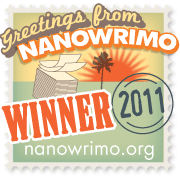As I’ve mentioned before, I write articles for magazines. Obviously these articles are non-fiction, and I therefore feel a great sense of responsibility to get the facts right. The magazine editor doesn’t have time to check out everything I write and trusts me to get it right. I owe it to the editor, the magazine itself, and most importantly the readers to check that my facts have been obtained from reliable sources, and from more than one source if possible. This is all quite clear cut and in line with how most feature article writers probably think.
But what about fiction? How much does it matter about getting facts right in fiction? Think of a film like Titanic. It centres around a real event, and much of the film is historically accurate. We know however that the main love story between Jack and Rose that runs through the whole film is fictional. We accept and understand that, but can we clearly identify how much of the rest of the film and the characters are completely real, based on reality, or completely fictional? And do we care?
This is an issue I ponder on quite often, where does the line get drawn when it comes to using facts within fiction? If I’m reading a book and I read something like ‘Thomas walked out of Kings Cross station and turned right onto Marigold Lane’, and I happen to know that there is no Marigold Lane near Kings Cross station, then it’s going to bother me. Thomas is fictional, the story is fictional, but Kings Cross is a real station and I therefore expect the geography of it to be real too. If it said ‘Thomas walked out of Hobble Bobble station and turned right onto Marigold Lane’, then no problem, it’s all fictional so I’m quite happy.
The train station example is a fairly simple one, with a simple answer, but the merged world of fact and fiction is generally much more complex. How much truth does there have to be for something to be described as ‘Based on a true story’ for instance? I suspect very little. Is it ok to rewrite history in order to make it fit your story? Historical fiction writers must clearly do a lot of research about the period, or event, that is the backdrop to their story in order for their story to be convincing, and I’m sure they will try and keep as much of the factual information as accurate as possible, but they are nevertheless writing fiction, not a history text book, and I wonder how they decide upon which aspects are acceptable to change and which are not.
Do you have any rules for yourself about which facts can or can’t be changed when you are writing fiction? And when you are reading a novel, does it worry you when facts have been changed, or are you happy to accept any fact alterations in fiction?



